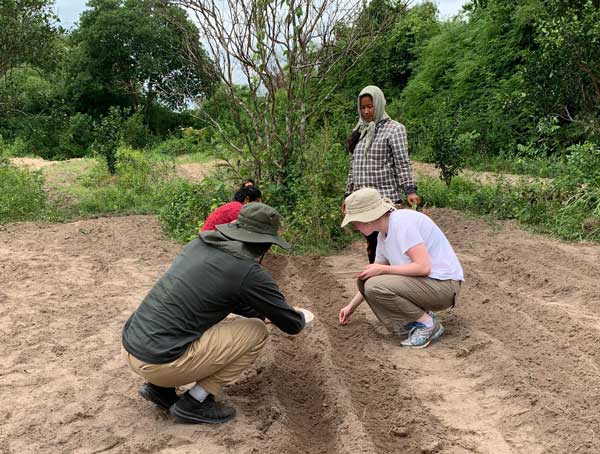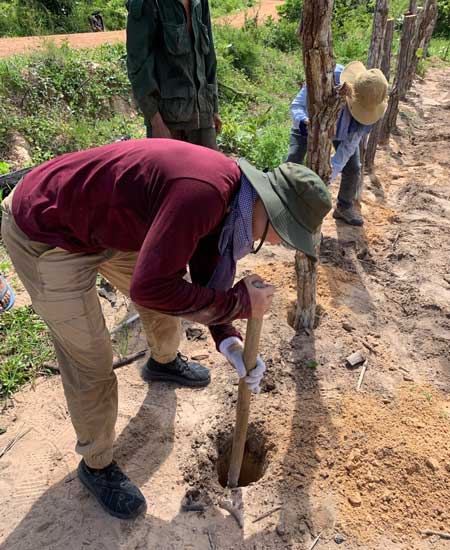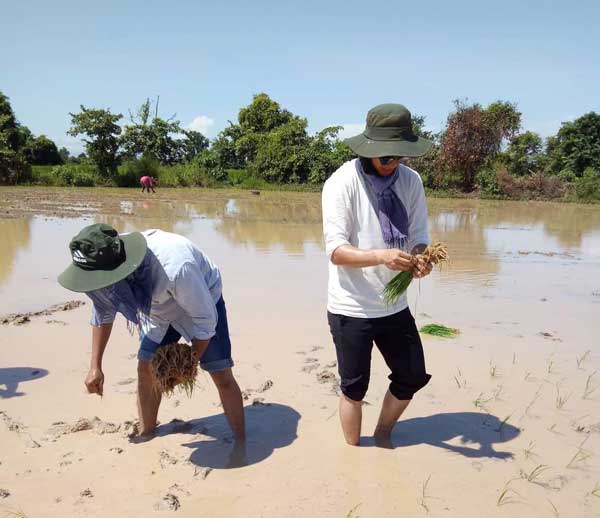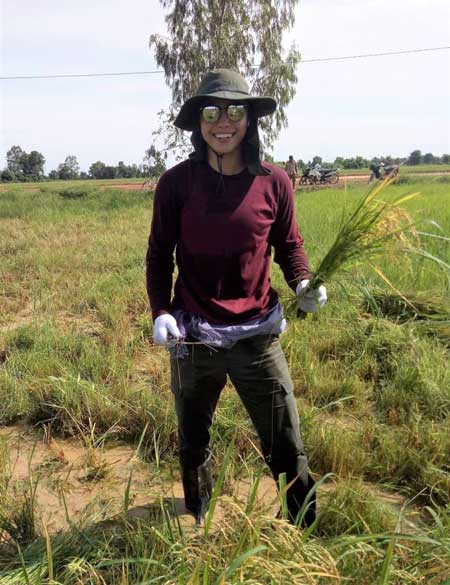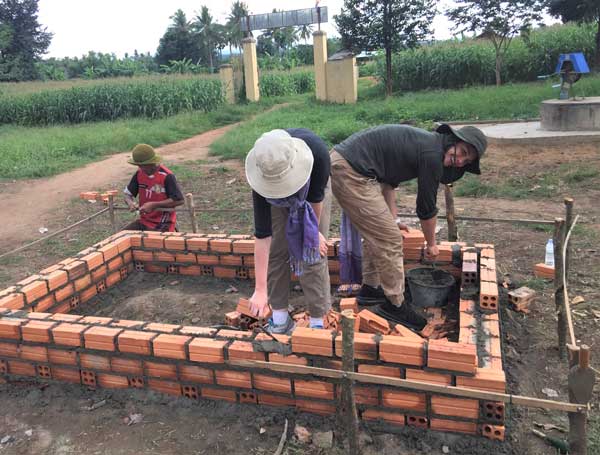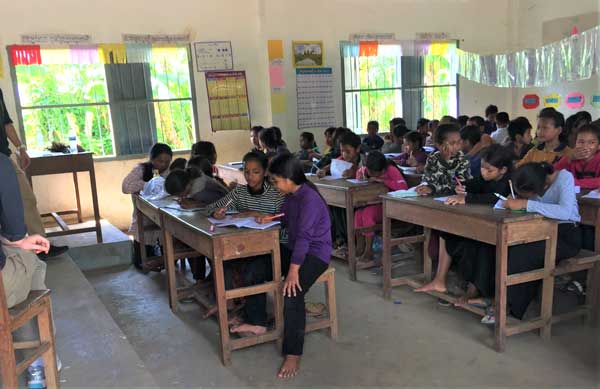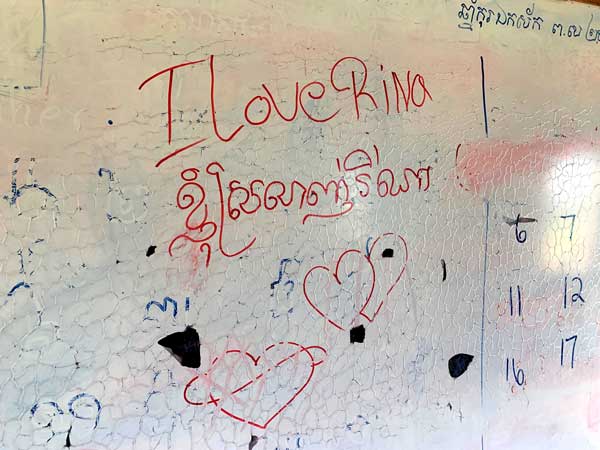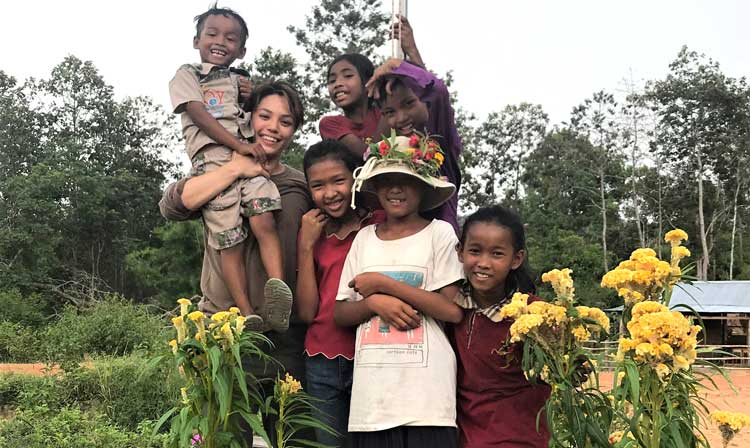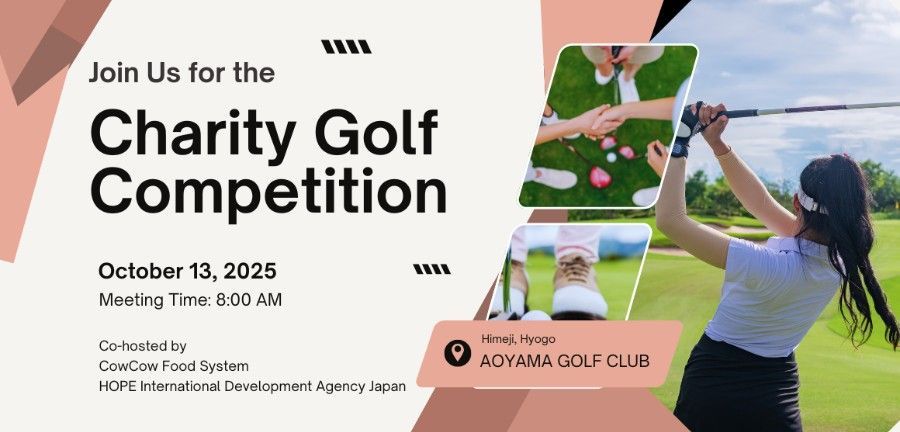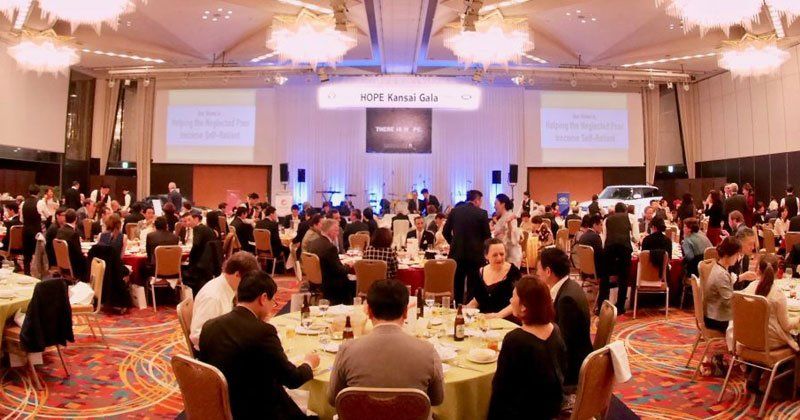A month in Cambodia - Rina’s Reflections
HOPE-JP • October 11, 2019
This August, I had the greatest privilege of spending a month in Cambodia as a HOPE Japan intern. It was a month full of experiences with many valuable life lessons. I decided to take this opportunity because I’ve always wanted to do something to address the issue of poverty. Although I had a general idea of what HOPE does, my main purpose was to gain a better understanding, by becoming more familiar with HOPE’s projects and see how it affects the lives of people in neglected areas. Despite wanting to supporting the cause of alleviating poverty, I’ve never actually been anywhere where people faced poverty until my visit to Cambodia. We can collect information for just about anything on the internet in a matter of seconds, but there’s still such a significance in seeing that reality with our own eyes. Some things can only be taught when being on site, which is extremely difficult to transmit through media. I was looking to gain a different perspective on life after completing my month in Cambodia, yet this experience helped me find everything I was looking for and more.
Rachel Warkentin, another intern from HOPE Canada and I spent a total of 25 days in the Pursat province staying in schools in different villages each week. The first week, we stayed at Ream Rey primary school in Ream Rey village. Our main job was to help families and schools by working in the fields, teaching English, and interacting with children. During our time in Ream Rey village, we had a chance to visit many of the well using families, and everyone welcomed us in with a warm smile. When growing crops together, Siem Peun, a mother of the family, told us how happy they were with the clean water that helps them grow many types of crops. She says that they can now eat as many meals, snacks, fruits as they want per day without having to worry about food shortages.
The second week, we stayed in Tadeis secondary and primary school in Tadeis, Somrong commune of Kravanh district. Our work pretty much stayed the same for the most part with the exception of building a brick flowerbed in their schoolyard. We spent most of our time at that school to help with the construction work. All the work was done by local volunteers who were mostly teachers who don’t specialize in construction operation. However, their work was near perfection with the minimal tools they had. They also taught us everything from how to make cement from scratch to brickwork. On Thursday, we moved to a different village called Oromchong to stay with a family whose father is the chief of a dry season rice field. The family let us help with rice planting and harvesting, where no tractors were used and everything was done manually. Although it was time-consuming and a bit exhausting, I very much enjoyed working alongside of them. It makes me happy remembering the joyful look on their faces when telling us how dry season rice has changed their lives significantly.
For our last week, we stayed at Angkrong secondary school in Angerong village. Again, the work was very similar to what we had done in the past two weeks, however, the biggest difference was that we were able to exchange a few words with children there. We interacted and spent a lot of time with children at every school, yet, the first two weeks, we weren’t able to communicate through language. I would say that the biggest challenge was not being able to understand each other’s language, though that didn't stop us from having a great time together. Nonverbal communication certainly helped a lot when getting a message across, but when it came to connecting with each other, our desire of wanting to get to know and understand one another was the most important component I believe. We played sports, grew crops, sang songs, made Origamis, and did so many other activities together. Often times we worked together because they always came over to help whenever we were working. I think we got to bond in a special way within the short period of time we shared. The children always seem to find joy in everything they did, and I loved how they expressed their feelings for just the way they were. The more time I spent with them, I noticed myself becoming more honest with my feelings. Still, it was great being able to exchange some words with the children at Angkrong secondary school which gave more depth to our relationship. I still remember how to write my name and a few words in Khmer that the children taught me while I was there.
Every afternoon, we taught English to children at the schools we stayed at. I was amazed by how motivated they all were to learn. The children took initiative in many things in the classroom. Not once did we have to ask them to take notes or to come up to the board to answer questions. By no means, were their learning conditions the most comfortable or ideal. But they had just enough to create an admirable learning environment for the children. It made me think that it’s really not buildings or comfortable furnitures that make up a sound learning environment, it’s about the culture created.
Our last day in Pursat, we visited a few villages in the Veal district, a remote area where HOPE hasn't been able to extend their work to many families yet. It was clear that having access to clean water nearby made a huge difference in people’s lives. Hearing stories from families that are waiting to receive a well broke my heart at times. I have to admit that I had the knowledge of what clean water could do before going to Cambodia, but not what it truly meant. It shocked me to see how a single well can help so many people. This whole experience opened me up to many possibilities clean water can provide, and the effects it has on our lives. “Every 5 days to 5 times a day” is how often they can bath now, says a blind man with such joy. This phrase kept repeating in my head on our way back. What I can do might be really small but I’m determined to contribute in ways I can to help increase the number of people like him.
This whole experience has given me so much and touched me in so many ways. I’ve been exposed to Cambodia’s beautiful culture, and cannot be more grateful for the opportunity that’s been given. There’s no need to understand language to recognize an act of kindness, and their culture really showed the beauty in humanity. It once again reminded me that we don't have to be someone to give. Giving is something anyone can do, and what’s even more amazing is that there’s no requirement on how much, who, or how many for people to give. I believe the small changes we make around us is the first step to making our world a better place. I aspire to become the change we hope to see in the world.

